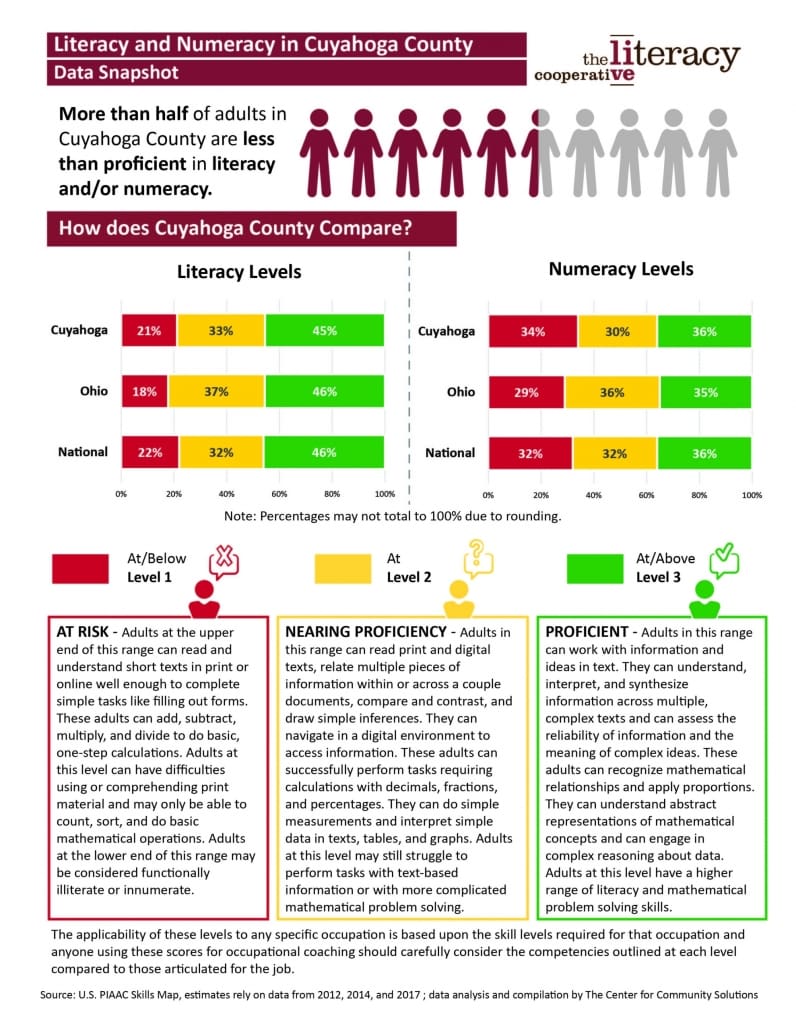New: PIAAC Skills Map: State and County Indicators of Adult Literacy and Numeracy
The National Center for Education Statistics (NCES) recently released the PIAAC Skills Map: State and County Indicators of Adult Literacy and Numeracy. The Program for the International Assessment of Adult Competencies (PIAAC) is a cyclical, large-scale study that was developed under the auspices of the Organization for Economic Cooperation and Development (OECD). The assessment focuses on workplace skills needed for successful participation in 21st-century society and the global economy.
This survey replaced the National Assessment of Adult Literacy (NAAL) that was published in 2003. The NAAL’s survey measured adults’ literacy performance and estimated the percentage of adults lacking basic prose literacy skills. Prose literacy skills are the skills and knowledge necessary to perform tasks like reading the newspaper, general instructions, or directions. The Literacy Cooperative used the NAAL data to publish the number of adults reading below an eighth grade level in our area. Since the two surveys are measuring skills differently, the PIAAC information doesn’t equate to a grade level of literacy like NAAL.
The following infographic gives a brief overview of how PIAAC reports the levels of literacy and numeracy. It compares the levels of literacy by county, state, and the nation. It is important to note that Cuyahoga County is equal to the state and nation at the highest levels of literacy and numeracy. It is also important to note that we have opportunity for improvement to engage more adults in advancing their literacy levels to be at the proficient level. The Literacy Cooperative is working with others including ProLiteracy and the Center for Community Solutions to do a deeper dive into this survey and hope to match the literacy and numeracy levels to occupations along career pathways. Our goal is to have the information ready this fall to present in a virtual session.
We will use this data to continue to promote the use of contextualized curriculum for literacy advancement and connection to career pathways and in-demand occupations. We will advocate for policy and funding for better connection of adult education and workforce development programming to address the needs of adults below proficiency. We will continue to focus on advancing literacy through our 2Gen Community Call to Action.

